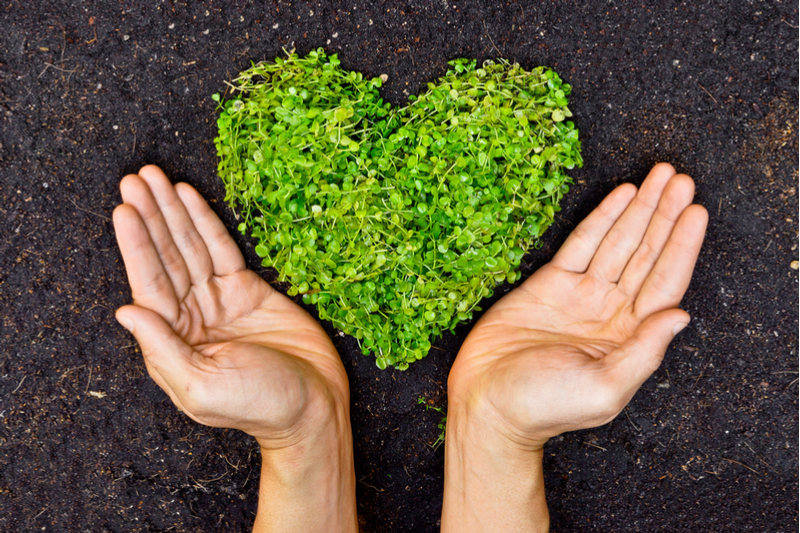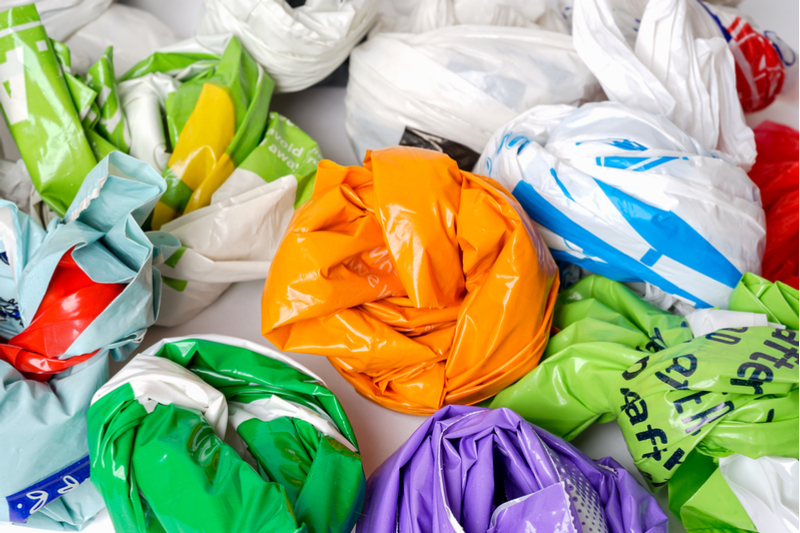Local environmental initiatives that are having a huge impact
Doing good begins at home – and when this comes to sustainability, this often begins in the office too. With us experiencing more of the effects of climate change than ever before in the form of increasingly extinct species and a rise in natural disasters, keeping your local community engaged in protecting the health of the planet is becoming increasingly vital for businesses. As a result, more and more retailers, restaurants and organisations are taking steps to lower their environmental impact in a range of weird and wonderful ways!

Saving the Earth is now more important than ever, with a recent UN report warning that we have until 2030 to keep its temperature to the current level of 1.5C and stop climate change in its tracks. As The Independent explains, if we don’t halve our greenhouse gas emissions by then, we will lose every coral reef and all of the Arctic ice in the world. Droughts and other natural disasters, such as hurricanes and tsunamis, will also become more prevalent, causing devastation for an increasing amount of people.
Fortunately, there are things that can be done to reduce greenhouse gas emissions. Greenhouse gases are released into the air by burning fossil fuels, energy usage, and waste materials being thrown away and decomposing in landfill sites. According to statistics, every year, 18 million tonnes of waste is sent to a landfill site in the UK.
Although some parts of the country are increasing household recycling by imposing fines on those that fail to do so correctly, and every business has a legal duty to prevent, reuse, recycle and recover waste (in that order), businesses and consumers now need to step up their game.
The good news is that many people are starting to take action to prevent climate change, and there is a host of great cafes, restaurants, retailers and other organisations that have set-up their own initiates and business practices to reduce waste. These range from some of the country’s biggest supermarkets giving unwanted food to those in need instead of throwing it away, to smaller shops making the switch to recycled packaging. Some businesses are even working to ditch packaging altogether.
Even if you don’t have the means to switch to more drastic environmentally-friendly practices such as ditching plastic packaging completely, smaller businesses can still take inspiration from environmental initiatives being carried out by larger organisations. You can also support them by doing business with them or purchasing their products and services as a consumer.
Money talks, and with 70% of consumers in the UK, US, Australia and China telling a New Sustainability survey that they would be willing to pay more for products and services that are eco-friendly, it’s clear that modern consumers care about making a difference. So, reducing your business’s carbon footprint has benefits beyond saving the planet.
Ready to get inspired? Here are some of the most exciting and unique environmental initiatives being carried out on your doorstep…
Zero waste shops
The amount of ‘zero waste’ shops (where items are unpackaged and shoppers are encouraged to bring their own bags) have gradually risen over the past few years, with early examples including zero waste supermarkets, The Zero Waste Shop in Devon and Bulk Market in East London, which both opened in 2017. However, arguably one of the most famous examples is perhaps beauty retailer, Lush Cosmetics, who now has over 100 stores in the UK and over 900 across the world. For many years, they have sold products without plastic packaging, such as shampoo bars, soaps and body scrubs. They went one step further in the beginning of 2019, opening their first UK packaging-free ‘Naked’ store in Manchester.
If you want to support smaller retailers, Pebble Magazine has compiled a brilliant list of 59 of the UK’s best zero waste stores. In Wales’ capital city of Cardiff is Viva Organic, who sell plastic free cutlery and other packaging-less items alongside loose fruit and veg. Over in Edinburgh in Scotland, The New Leaf Co-op is described as a ‘hidden gem’ that stocks loose dry goods with plenty of gluten free, dairy free, and vegan options. There are plenty to choose from in England, including The Source, The Refill Larder and Get Loose in London, NADA in Leicester, Scoop in Oxfordshire and Refill in Liverpool.
Sustainable cafes and restaurants
Being eco-friendly doesn’t just stop at increasing the amount of waste you recycle and reducing energy and fossil fuel usage; it also comes down to the food you eat. As a result, more and more restaurants, cafes and pubs are adopting sustainable practices. In Great Britain, a prime example is Silo in Brighton, who describe themselves as “the only truly zero-waste restaurant” in the UK. They compose all of their leftover food onsite and crush all glass to be made into ceramics for the diners. Their Old Tree brewery also creates fermented drinks from foraged plants, herbs, vegetables and fruit.
Poco, a tapas restaurant in Hackney in London (and now Bristol), also focuses on creating as little food waste as possible. 95% to 100% of their waste is composted and recycled, and both restaurants source over 90% of their ingredients from within a 100-mile radius, and these are chosen for their traceability. To find sustainable eateries near you, both Vouge UK and Olive Magazine have complied great lists of the best sustainable cafes and restaurants across the country.
Big supermarkets reducing waste
Thanks to the implementation of the 5p plastic bag charge in Wales (and later, the rest of Britain), the UK’s ‘big seven’ supermarkets (which includes Asda, Sainsbury’s, Tesco, Morrisons and Waitrose) have seen an 86% decrease in plastic bag sales since the scheme began in 2015. The charge is due to rise to 10p per bag, and smaller businesses with less than 250 employees will have to take part whereas they were excused before. However, some of the UK’s biggest supermarkets are going one step further to tackle plastic and food waste. A prime example is Morrisons, who has pledged to ensure that 100% of the packaging for its own-brand products is recyclable by 2020.

In 2019, Tesco, Sainsbury’s and Marks & Spencer teamed up to offer a solution to recycle black plastic, which until now, has been famously difficult to do so. Tesco, alongside German supermarket, Aldi, also give their unsold food to charities instead of throwing it away. As of the beginning of 2018, Tesco had donated enough to provide 1.2 million meals to over 2,400 charities and community groups, including foodbanks and homeless shelters. Aldi, on the other hand, has donated surpass food to the Fareshare charity since 2012, and their Regional Distribution Centres also provide food to smaller local charities.
Repair cafes are reducing landfill
When an item breaks, most of us don’t think twice about throwing it away. Whether this is an item of clothing or a piece of electrical equipment, many of us just don’t have the skills or time to repair these ourselves. Fortunately, a number of ‘repair cafes’ have been set out throughout the UK to combat this issue, taking inspiration from the first Repair Café that was held in Amsterdam in October 2009. Repair Cafes are best described as workshops where volunteers are provided with tools to fix everyday items such as bicycles, computers, mobile phones, hair dryers and hoovers.
There are currently around 22 Repair Cafes in the UK. Just some of the locations they’re regularly held at include London, Glasgow, Cardiff, Swindon, Cambridge, Reading, Leeds, Portsmouth and Brecon. A full list of Repair Cafes around the world can be found at the official Repair Café website.
Invisible Dust projects
According to Visible Dust, their aim is to ‘make the invisible visible’. They work with leading artists and scientists to produce contemporary art that raises awareness of health and environmental issues, such as climate change and air pollution. Founded in 2009 by curator Alice Sharp, the award-winning charity has hosted a number of interactive events, exhibitions and conferences across the UK, making learning about environmental issues more engaging and accessible for everyone. One of their current projects, How We See the Sea, is working to raise awareness of the challenges of protecting the world’s seas.
There are plenty of ways that smaller businesses can take inspiration from bigger brands to become more environmentally conscious. Just one way this can be achieved is by investing in a waste baler, which segregates waste materials to make it easier to recycle. Contact us to find out more or request a free Wastesaving Audit.